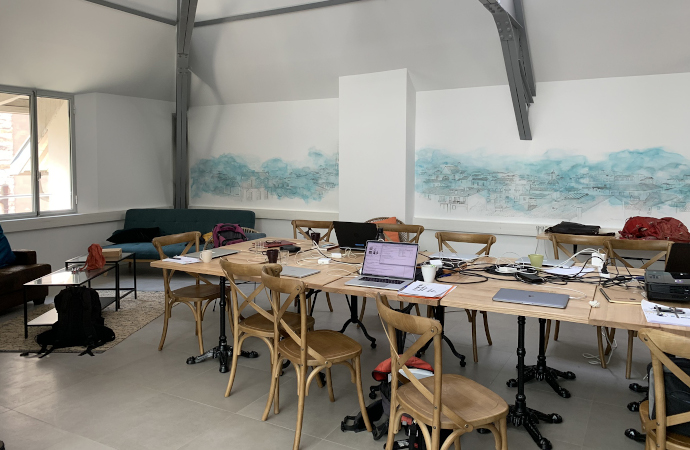Invite researchers

In order to respond to more specific requests from researchers looking for a dedicated place and time to work on their projects, CESAB – FRB‘s main programme – has developed two new formulas since 2019: the CESABBATIC and CESAB-COLLAB
Since it was created, CESAB had multiple research projects to work on existing data and information on biodiversity. These two new formulas complete CESAB’s offer by enabling a greater number of researchers to benefit from the Centre’s assets.
CESABBATIC
- The CESAB, and its potential partners, invites researchers from national or international institutions to come and work in the centre in Montpellier, to write a scientific article for a major international journal of ecology and evolution.
- During these short stays, researchers can enjoy the centre and take advantage of the richness and dynamism of the local scientific community.
CESAB-COLLAB
- CESAB also provides the opportunity to host in its Center groups of researchers working on their own project of data synthesis in the field of ecology. Different levels of collaboration can be envisaged, from the simple reception of the group to the provision of the FRB’ team dedicated to CESAB.
Invitation of researchers from national or international laboratories on a short term basis to write a synthesis article at CESAB for a major international journal of ecology and evolution
- FEMPA – Function Ecology underpins pelagic Marine Protected Area implementation and assessment
Tom LETESSIER – Zoological Society of London (United Kingdom). Co-PI CeMEB : David MOUILLOT – Université de Montpellier (France)
2022 (according to the evolution of the covid-19 situation) – Call for proposals FRB-CESAB / CeMEB
Offshore “pelagic” marine protected areas (MPAs) extending over large parts of national EEZs and even on the High Seas are being created. Placement and assessment of these MPAs are problematic because pelagic habitats are relatively species-poor and patchy. Characterizing pelagic animals by their traits rather than nomenclature will determine the functional ecology of assemblages and how that function trends through time.
Tom LETESSIER with colleagues, has collected data on pelagic species, abundance and size dataset from 34 locations in the Indian, Atlantic and Pacific oceans, based on 64 expeditions and ~6,500 samples since 2012, including time series. Macroecological and functional analyses will be applied to these data to quantify their “functionality” and compare these patterns to more conventional biodiversity patterns. This analysis, based on a unique global dataset, will provide insight into pelagic ecology and contribute to our capacity to assess how pelagic communities respond to protection.
- ISLETS – ISland Leaf Economics Trait Synthesis
Kasey BARTON – University of Hawaii (USA). Co-PI CeMEB : Claire FORTUNEL – UMR AMAP, CIRAD Monpellier (France)
2022 (according to the evolution of the covid-19 situation) – Call for proposals FRB-CESAB / CeMEB
Islands harbor a unique and diverse flora that is currently threatened by biological invasions. Recent studies provide a framework to better quantify the functional aspects that make island natives unique and thus potentially vulnerable to continental invaders. However, these broad characteristics lack a mechanistic link to species growth strategies, which hampers our ability to predict how invasive continental species can displace island species.
Kasey BARTON and Claire FORTUNEL propose a meta-analysis to better understand functional differences between island and continental plant species, which can help improve science-based decisions on conservation strategies.
Invitation at CESAB, of groups of researchers to work on their own data synthesis projects in the field of ecology
- FAIR Data – October 2019, Montpellier
Cesab organized an inter-Labex retreat on the need to make research data FAIR: “Findable, Accessible, Interoperable and Reusable”.